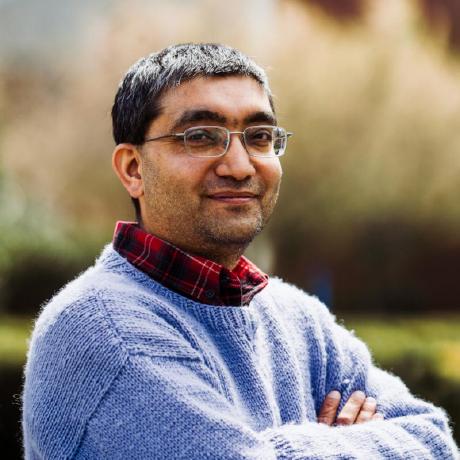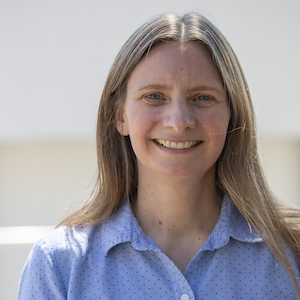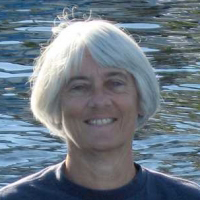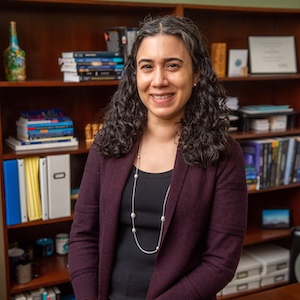 |
The AAVSO 112th Annual Meeting will be held at The Row Hotel, in Somerville, MA. This will be a hybrid meeting. On Friday, November 3rd there will be a hybrid all day Python Workshop with Dr. Matthew Craig. Friday evening will feature an opening reception and speaker for all in person registered Annual Meeting participants. Saturday and Sunday will include the Landolt Lecture, keynote speakers and research presentations, the Membership Meeting, and the closing banquet. Presentations and the Membership Meeting on Nov. 4 & 5 will be broadcast via Zoom to online attendees.
|
Registration
In-Person registration–Closed
Online Registration–Closed
Note: Once on the registration page, you can additionally register for the Python workshop and/or banquet by clicking the red "plus" button.
Schedule
Click on a presentation to jump to its abstract.
| Time | Talk Title | Presented by | Theme |
|---|---|---|---|
| 6:30 p.m.–7:30 p.m. | Cocktail Hour | ||
| 7:30 p.m.–7:45 p.m. | Welcome | ||
| 7:45 p.m.–8:30 p.m. | Friday Night Keynote AAVSO and Undergraduate Institutions: Synergies, and Testbed for New Technologies |
Dr. Dipankar Maitra | Education |
| 8:30 p.m.–10:00 p.m. | Star Party on the hotel deck, featuring Unistellar [weather permitting] | ||
| Time | Talk Title | Presented by | Theme |
|---|---|---|---|
| 8:30 a.m.–9:00 a.m. | Continental Breakfast | ||
| 9:00 a.m.–9:10 a.m. | Opening of the Membership Meeting | Dave Cowall | Membership Meeting |
| 9:10 a.m.–9:15 a.m. | Reading and Approval of 2022 Minutes | Kris Larsen | |
| 9:15 a.m.–9:25 a.m. | Treasurer's Report | Bob Stephens | |
| 9:25 a.m.–9:35 a.m. | JAAVSO Report | Nancy Morrison | |
| 9:35 a.m.–9:40 a.m. | Announcement of Board Election Results | Dave Cowall | |
| 9:40 a.m.–10:00 a.m. | Membership Report | Brian Kloppenborg | |
| 10:00 a.m.–10:30 a.m. | Director's Report | Brian Kloppenborg | |
| 10:30 a.m.–11:00 a.m. | Awards | Dave Cowall & Brian Kloppenborg | |
| 11:00 a.m.–11:10 a.m. | Coffee Break | ||
| 11:10 a.m.–11:45 a.m. | Keynote Overview of the CHARA Array: Highlights and New Collaborations |
Gail Schaefer | Telescopes & Observing |
| 11:45 a.m.–12:05 p.m. | Cooperative Observing at a Modest-Sized Observatory | Michael Joner [remote] | Telescopes & Observing |
| 12:05 p.m.–2:00 p.m. | Lunch Break | ||
| 2:00 p.m.–2:35 p.m. | Keynote Planet Formation and Protoplanetary Disks |
Catherine Espaillat | Planet Formation |
| 2:40 p.m.–3:00 p.m. | Detecting Exoplanets | Lauren Sgro | Exoplanets |
| 3:00 p.m.–3:20 p.m. | An Unfortunately Constant Star Field | Tanner Weyer | Exoplanets |
| 3:20 p.m.–3:40 p.m. | Learning to Observe Exoplanet Transits During a Summer REU Program | Hafsa Jamil [remote] | Exoplanets |
| 3:40 p.m.–4:00 p.m. | Algorithms to Determine an Asteroid's Properties and NASA DART Mission | Arushi Nath [remote] | Asteroids |
| 4:00 p.m.–4:20 p.m. | The Stars of Bethlehem: Three Ancient Observations | Kenneth Beckmann [remote] | History of Astronomy |
| 4:20 p.m.–4:30 p.m. | Closing Remarks by Organizing Committee | ||
| 4:30 p.m.–6:30 p.m. | Break | ||
| 6:30 p.m.–10:00 p.m. | Closing Banquet [incl. Trivia Contest, Raffle Drawing] | ||
Keynote Speakers
|
|
Arlo Landolt Lecturer: Prof. Paula SzkodyProf. Szkody uses a multiwavelength approach to study close binary stars with active mass transfer (Cataclysmic Variables). Her current research involves ultraviolet observations with the Hubble Space Telescope as well as APO and ground-based optical facilities around the world. She is currently finding the faintest, lowest mass transfer CVs leading to insights into the nature of mass transfer and accretion onto magnetic and non-magnetic white dwarfs, accretion disks and their X-ray-emitting boundary layers, stellar coronae, and the effects of irradiation on the upper atmospheres of late-type secondary stars. Her work involves observations of all types of close binary systems involving mass transfer onto a white dwarf. This includes novae, dwarf novae, and novalikes which are all termed Cataclysmic Variables (CVs). The magnetism of the white dwarf determines if the mass flow from the low mass companion will be through an accretion disk, a curtain or a funnel onto the magnetic poles. The structure of the accretion flow as well as the underlying stars is determined from multiwavelength observations from X-ray through ultraviolet and optical to the infrared. Many of these objects are being discovered through ground-based surveys (SDSS, CRTS, iPTF) and followup takes place from space and ground to determine their specific types and how they fit into population models of close binary formation. View Talk Abstract |
 |
Prof. Dipankar MaitraAn astrophysicist by training and an amateur astronomer at heart, Prof. Maitra works with students and collaborators around the world on understanding what happens near black holes and neutron stars. He is especially interested in understanding the coupling between accretion inflows and relativistic outflows near these objects. Lately he has been interested in optical polarization studies of the solar corona and other astronomical bodies as well. He earned his PhD from Yale University and did postdoctoral stints at the University of Amsterdam and the University of Michigan before joining the Physics & Astronomy faculty at Wheaton College (MA). He is constantly searching for better ways to involve students and amateur astronomers in astronomical research, and to make physics and astronomy classes more welcoming and inclusive. He uses telescopes in Wheaton’s on-campus observatory and other ground-based remote telescopes, as well as space-based optical, UV, and X-ray telescopes, for his teaching and research. View Talk Abstract |
|
|
Prof. Catherine EspaillatProf. Espaillat received her bachelor's degree from Columbia University in 2003 and earned a Ph.D. in Astrophysics from the University of Michigan in 2009. She went on to the Harvard-Smithsonian Center for Astrophysics as an NSF Astronomy and Astrophysics Postdoctoral Fellow and she was later also awarded the NASA Carl Sagan Fellowship. Prof. Espaillet joined the Department of Astronomy at Boston University in 2013 where she is currently an Associate Professor. She is a recipient of the Sloan Research Fellowship and the National Science Foundation’s CAREER award and is also a Fellow of the American Association for the Advancement of Science. View Talk Abstract |
 |
Dr. Gail SchaeferDr. Schaefer is the Director of the CHARA Array of Georgia State University located at Mount Wilson Observatory in southern California. Gail earned her bachelor's degree from Binghamton University and PhD from Stony Brook University in New York. She did a postdoctoral position at the Space Telescope Science Institute in Baltimore, MD before moving to the CHARA Array in 2007. Her research interests include mapping the orbits of binary stars and understanding how young stars form and evolve over time. She leads a vibrant team that operates the CHARA Array and oversees an NSF funded program to offer open access time to the astronomical community. View Talk Abstract |
Python Workshop
This year's workshop will focus on Python and AstroPy, providing an introduction to the power of Python for automating image processing and reducing photometric data. Other topics will include using Python for period analysis, retrieving astronomical data from sources like VSX, and basic plotting.
View Workshop Description
Registration for the Python workshop is considered an add-on to your registration for the 112th Annual Meeting (no matter whether you are registering to attend in-person or online). You can register for the Python workshop at the same time as you register for the regular meeting, by clicking the red "plus" button on the registration page.
The workshop will be led by Prof. Matt Craig.
|
|
Prof. Matt CraigProf. Craig has taught Physics and Astronomy for 25 years at Minnesota State University Moorhead and is a core member of the Astropy development team, having spent over two thousand hours working on development. In particular, he served as a lead on the "NDData" subpackage, giving Astropy the power to handle images, and is also one of the primary authors of the Astropy-affiliated package "ccdproc", used for calibrating CCD data. He has been using Python to work with astronomical images and do photometry for over a decade, work that began when he found that the free, open source options were limited. |




